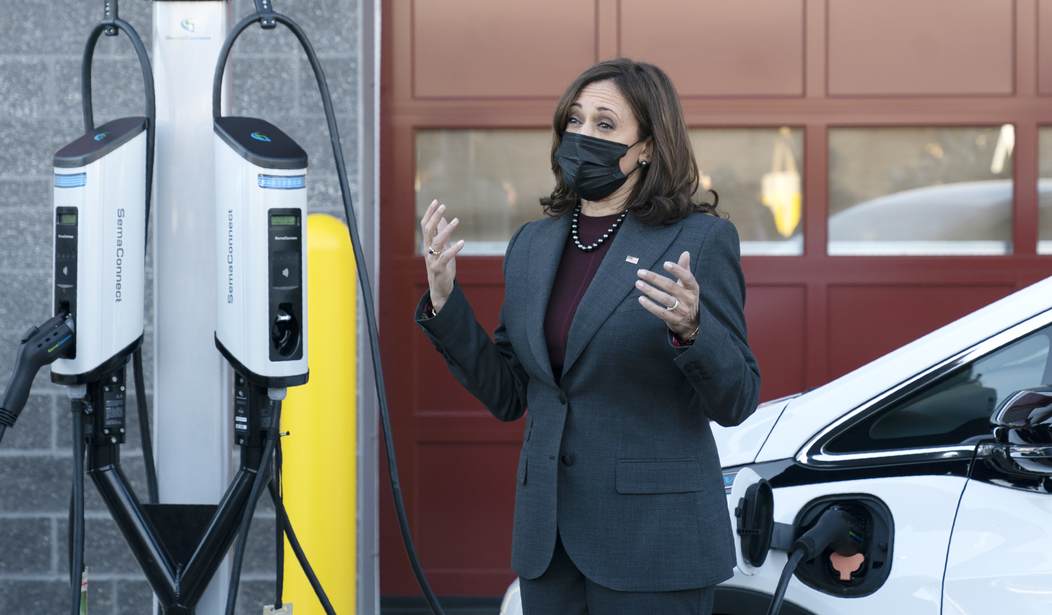The push to move everybody to electric vehicles (EVs) has proven to be one of the most unrealistic examples of government meddling in the private sector that we’ve ever seen. It’s not just here in the U.S. either. The UK is dealing with major mandates, and consumers are reaping the consequences.
Since the beginning of the year, the UK has been under a Zero-Emission Vehicle (ZEV) mandate that vehicle manufacturers sell at least 22% all-electric vehicles or face penalties of £15,000 ($19,659.67 as of this writing) for every gas, hybrid, or diesel car over that threshold. The trouble is that less than 22% of British car buyers are going the EV route.
“In the seven months to the end of July, according to the Society for Motor Manufacturers and Traders (SMMT), just 16.8 per cent of cars sold were battery electric vehicles (BEVs),” writes Ross Clark at The Spectator. “This is marginally above the level of 16.1 per cent in the same month of 2023, but it is nowhere near 22 per cent – and that is in spite of manufacturers bending over backwards with generous discounts on the vehicles.”
Much of the problem has to do with pricing. EVs are roughly 50% more expensive in the UK than gas or diesel-powered and hybrid cars. But there’s also an issue of practicality; EVs aren’t feasible for British households that can’t park their cars off the street, which is a third of houses in the UK. EVs are generally bulkier, which makes them less attractive to buyers as well.
Related: Ford's Latest Pivot Shows That the EV Craze Has Fizzled Out
This is driving some manufacturers to partner with Chinese companies for dirt-cheap EVs. Other manufacturers are feeling the crunch of having to make sales quotas for the year or face the dreaded fines.
Clark writes:
Now the crunch has come, as it was always likely to do in the autumn: car-makers are getting to the point at which they can’t afford to sell many more petrol, diesel or hybrid models this year without risking running into those punitive £15,000 fines. Hence the efforts to push sales into next year. But that will only buy a temporary stay of execution, because next year manufacturers will have to ensure that 28 per cent of vehicles they sell are BEVs – and the proportion rises to 80 per cent by 2030 (or quite possibly 100 per cent if Labour returns to an all-out ban on petrol and diesel cars by 2030, and adds hybrids to the banned list too). If you have pre-sold much of next year’s petrol and diesel quote in advance, life is going to be even more difficult next year.
At the same time, buyers are having a hard time getting their hands on the cars they want. The wait time for some gas, diesel, and hybrid vehicles is stretching well into next year.
This is a scenario we could see here in the States if Kamala Harris wins the election. She may have said she doesn’t support EV mandates during the campaign, but that doesn’t mean she won’t go back on her word if she wins. We also know how the Democrats love to push executive orders that make our lives less convenient and affordable, so EVs could be next.
Here at PJ Media, we’re going to do all we can to make sure that Harris doesn’t get the chance to force us into EVs. You can help us fulfill this mission by becoming a PJ Media VIP.
Our VIP members have access to exclusive content, podcasts, the comments section, and an ad-free experience; plus, PJ Media VIPs are investing in solid, truthful, conservative reporting.
There’s never been a better time to become a VIP because you can use the promo code SAVEAMERICA to get 50% off! What are you waiting for? Sign up today!










Join the conversation as a VIP Member